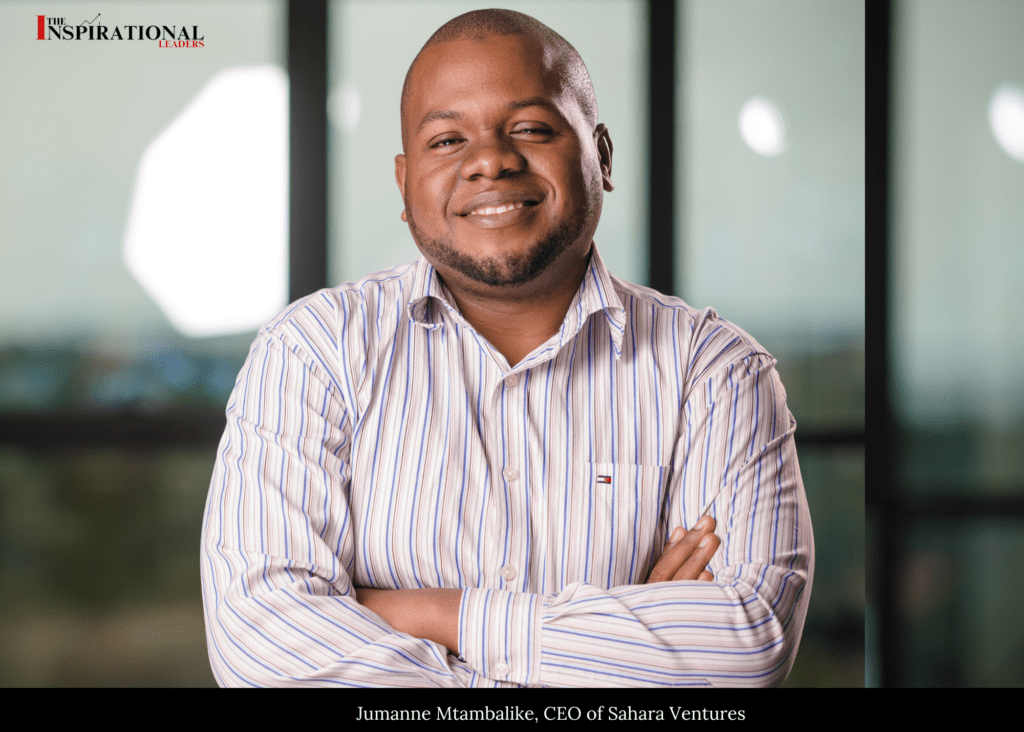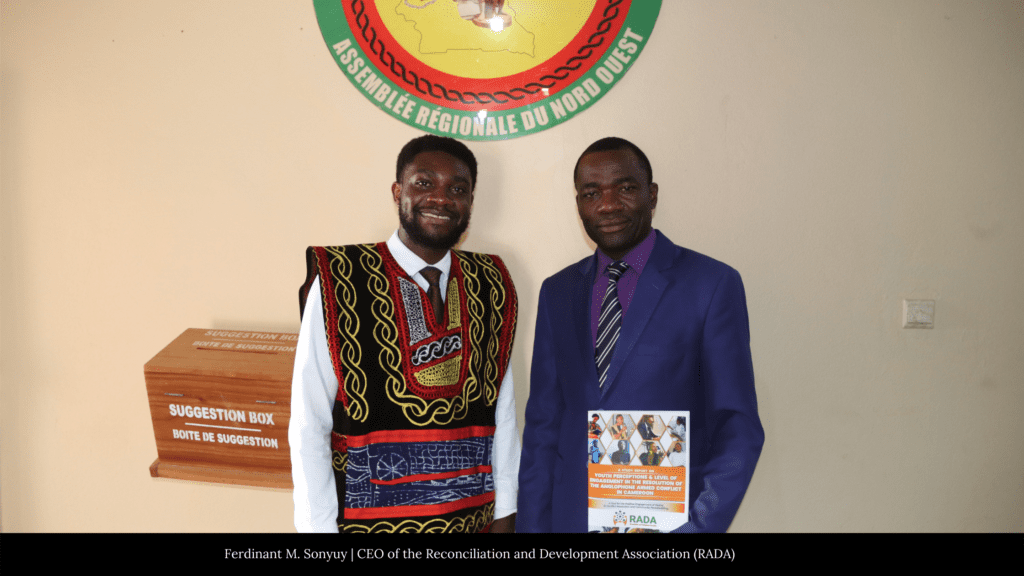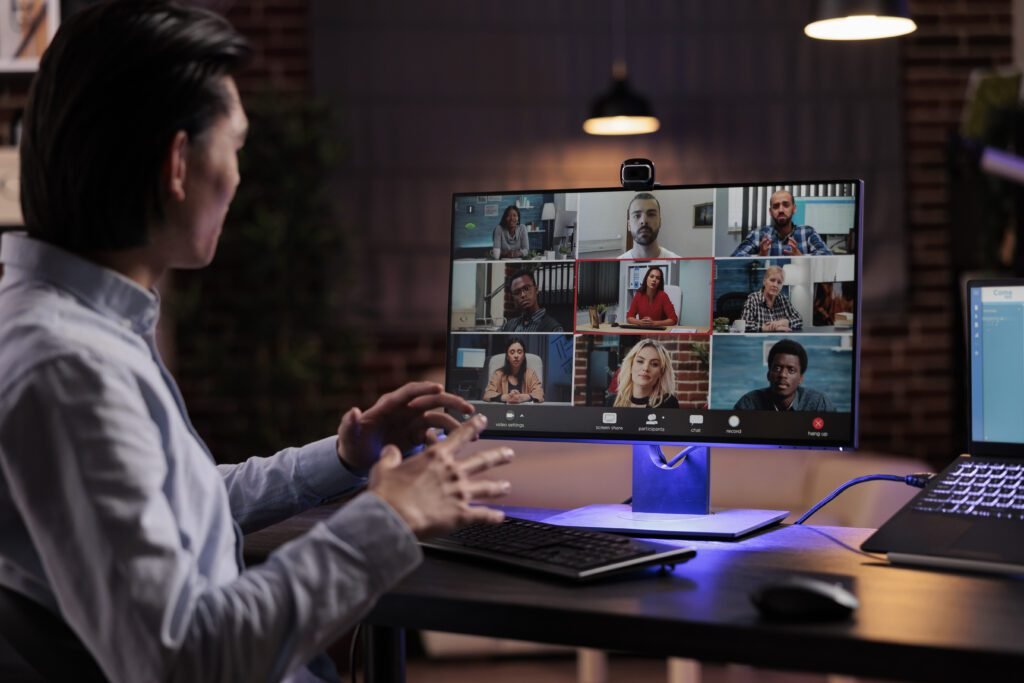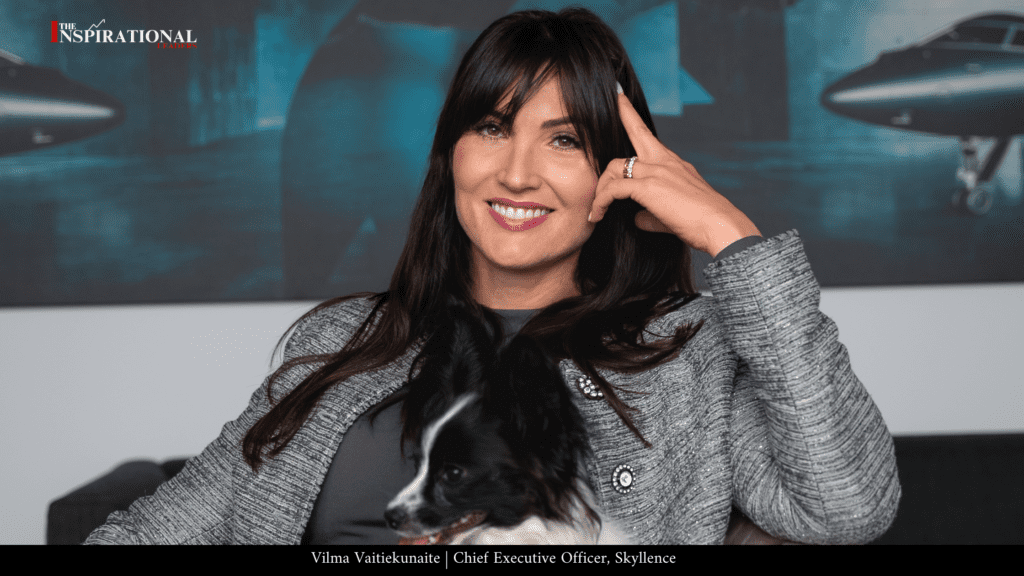A Visionary Leader Shaping Africa’s Entrepreneurial Ecosystem
Digital Version A Visionary Leader Shaping Africa’s Entrepreneurial Ecosystem Jumanne Mtambalike’s journey into entrepreneurship began with a strong desire to address Africa’s most pressing challenges. His vision was clear from the start – create a platform that would foster innovation, support startups, and drive economic growth. As the founder and CEO of Sahara Ventures, Mtambalike has built a company that not only incubates ideas but accelerates the growth of startups and connects them to global markets. Building a Foundation for Entrepreneurship and Innovation Mtambalike’s early career experiences laid the foundation for Sahara Ventures. Beginning as anInnovation Trainee at Buni Hub, he learned firsthand the impact of innovation spaces on nurturing talent and supporting startups. The lessons learned from managing Buni Hub, combined with his personal entrepreneurial ventures, informed his vision for Sahara Ventures: a platform dedicated to building Africa’s innovation ecosystem through entrepreneurship.“What motivated me was the need to create sustainable solutions for Africa,” he recalls. “Iwanted to develop a company that would bridge the gap between innovators and markets, providing them with the tools and resources to succeed.” “Our mission is to ensure that African entrepreneurs have access to the same resources as their peers in other parts of the world.” A Catalyst for Change Across the Continent Sahara Ventures is driven by the vision of creating a sustainable innovation and technology entrepreneurship ecosystem across Africa. Mtambalike sees the company’s role as a catalyst for change, empowering young entrepreneurs and providing them with the resources to thrive. Thecompany is focused on expanding its reach, building partnerships with governments, privatesectors, and global investors, all with the goal of positioning Africa as a global hub for innovation.“Our mission is multifaceted,” he explains. “We identify promising startups, accelerate theirgrowth, and promote them on both regional and international stages. The goal is to ensure thatAfrican entrepreneurs have access to the same resources as their peers in other parts of the world.” Ecosystem Building Through Collaboration Sahara Ventures’ approach to entrepreneur-ship is rooted in collaboration. Rather than focusing solely on startups, the company builds the entire ecosystem around them by engaging with stakeholders from government, academia, private sectors, and development partners. One of their unique strategies is an emphasis on grassroots innovation – working closely with local entrepreneurs to understand the specific context of their solutions. A standout initiative in this ecosystem-building effort is Silicon Dar, an organically formed tech hub in Dar es Salaam that supports entrepreneurs with digital skills training, market access, and innovation opportunities. This initiative, along with Sahara Ventures’ dedication to digitization, ecosystem mapping, and financial inclusion, highlights the company’s commitment to fostering innovation in underserved markets and turning Tanzania into a smart technology hub. Navigating Challenges and Building Solutions Like many African entrepreneurs, Sahara Ventures has faced significant challenges, particularlyin securing early-stage funding for startups. In response, the company has forged partnershipswith local financial institutions and established initiatives like the Sahara Accelerator to connectstartups with investors. They are also preparing to launch Raphta Angels, an angel investmentnetwork that will focus on supporting grassroots entrepreneurs in East and Central Africa. Capacity building is another challenge. Many entrepreneurs need mentorship and training to turn their ideas into viable businesses. Mtambalike’s solution? Extensive mentorship programs and workshops that equip entrepreneurs with the practical skills they need for success. Leading with Integrity, Collaboration, and Impact For Mtambalike, leadership is about more than just business success – it’s about creating a lasting impact. Integrity, collaboration, and impact are at the core of his decision-making process, and these values drive Sahara Ventures’ operations. “At Sahara Ventures, we believe in being BOLD – Brilliance, Optimism, Love, and Determination,” he shares. “These values are the foundation of everything we do, and they guide us in building meaningful relationships and making a difference in the communities we serve.” Empowering a New Generation of Entrepreneurs Looking ahead, Mtambalike envisions a future where entrepreneurship in Africa is shaped by technology, sustainability, and inclusivity. The rise of digital technologies, artificial intelligence, and green solutions will be key drivers of growth, and Sahara Ventures is positioning itself to lead in these areas by investing in digital skills, supporting green startups, and promoting inclusive opportunities for youth and women.Sustainability is also at the forefront of Mtambalike’s vision. Sahara Ventures integrates sustainable practices into its operations by supporting clean technology startups and focusing on environmental impact. Through programs like ClimateKIC, the company is helping to build a future where entrepreneurship contributes to a more sustainable and equitable world. “The future of entrepreneurship in Africa will be shaped by the rapid adoption of digitaltechnologies and the increasing role of youth and women in innovation.” Innovating for the Future Sahara Ventures is preparing to launch several transformative initiatives, including Raphta Angels and Camel.AI, an AI-enabled consulting service that integrates artificial intelligence into business consulting. Additionally, the company is digitizing its accelerator process with InvestoRedo.AI, a platform that will streamline the startup acceleration process and provide personalized guidance.Through these initiatives, Mtambalike aims to shape a future where African entrepreneurs are at the forefront of global innovation, and Sahara Ventures is leading the charge. “We believe in being BOLD – Brilliance, Optimism, Love, and Determination.”




